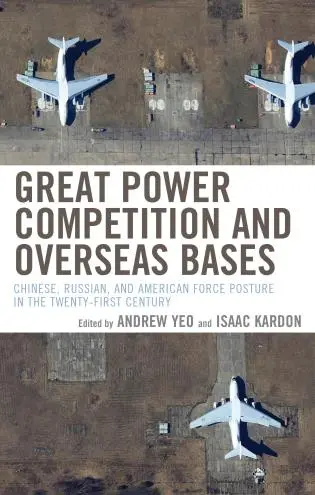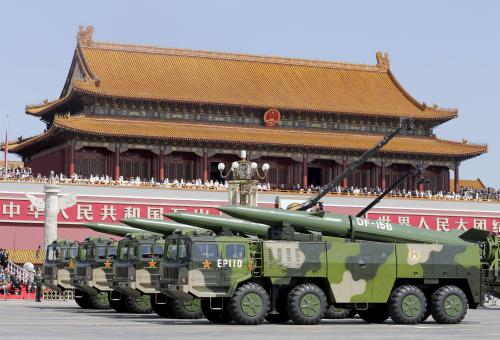Content from the Brookings Doha Center is now archived. In September 2021, after 14 years of impactful partnership, Brookings and the Brookings Doha Center announced that they were ending their affiliation. The Brookings Doha Center is now the Middle East Council on Global Affairs, a separate public policy institution based in Qatar.
On June 30, the Muslim Brotherhood’s Mohamed Morsi took his oath of office, becoming Egypt’s first freely elected civilian president. There seems to be, finally, a sense of forward momentum. On Friday, Morsi gave a rousing address in Tahrir square, where he repeatedly shouted, in somewhat dramatic fashion, that the people were the source of power. But, for now at least, the people aren’t. The military holds the power. And, as long as it does, what’s left of Egypt’s faltering transition remains under threat.
All in the span of one very bad week this June, the Supreme Council of the Armed Forces (SCAF) and its allies dissolved parliament, reinstated martial law, and decreed a constitutional addendum stripping the presidency of many of its powers. The military, more than a year after helping nudge out President Hosni Mubarak, had staged a confusing but seemingly masterful coup within a coup. All of this raises a difficult question: what can, or should, the United States do in response?
The United States, after all, spends over $1 billion annually in military aid to Egypt. This could give the Obama administration a degree of leverage over the military and, whether fairly or unfairly, leads many Egyptians to see the U.S. as backing the ruling generals.
The Obama administration’s problems in Egypt — a vital ally and the Arab world’s most populous nation — did not start last month. U.S. policymakers made a fateful mistake in the early days of Egypt’s transition, shortly after millions of protesters brought down President Hosni Mubarak. The U.S. wagered that a military-led transition would facilitate (and manage) the democratization process while safeguarding U.S. interests. In essence, it was the same Faustian bargain that had defined American policy for decades — for example in Latin America during the Cold War or in Pakistan today — but updated for the Arab Spring. But there was little reason to think that the Egyptian military — itself the backbone of the Mubarak regime for nearly three decades — would suddenly discover it believed in democracy.
The Obama administration seemed to put little public pressure on SCAF, even when the military was conducting “virginity tests” on female protesters or, in several deadly clashes, outright killing them in the streets around Tahrir Square. U.S. officials seemed to believed (or maybe they just wanted to believe, as after all we all did), that SCAF, for all its faults, was sincere in its pledge to eventually cede power and go back to the barracks.
U.S.-Egypt relations reached its lowest point in decades in February, when 16 Americans working for non-governmental organizations in Cairo were charged with dubious crimes, some facing up to five years in prison. When the Egyptian government lifted the travel ban on the accused, allowing them to leave the country, the State Department announced that military aid would resume. But the Egyptian government’s NGO probe had primarily targeted Egyptian, not American, civil society organizations, which found themselves alone. The U.S. had pushed hard for its own citizens’ freedom, but not for the Egyptians doing the same, pro-democracy work.
In resuming aid, the Obama administration set a dangerous precedent. The administration, along with the U.S. Congress, had threatened to suspend aid if Egypt’s military did not show a genuine commitment to democracy, including “implementing policies to protect freedom of expression association… and due process of law.” Yet those threats proved hollow. The Egyptian military likely saw its suspicions as confirmed; in a tense standoff over democratization, the U.S. would buckle under pressure.
Privately, U.S. officials justified their decision by claiming that they were saving their leverage for when it would matter most. They would continue to hold SCAF to its pledge to hand over power by July 1. Yet that deadline has come and gone and, once again, the same questions — and doubts — linger. The SCAF continues to undermine Egyptian democracy, apparently confident that there will be few, if any, real consequences to its relationship with the United States.
It’s not too late for the Obama administration to change this dynamic. The U.S. could still withhold military aid to Egypt. Leverage, though, is a tricky thing. After the U.S. backed down on its last public threat to revoke aid, the challenge is making the SCAF believe that it really could lose the aid this time. Therefore, the best way to restore American credibility — and, with time, to restore leverage as well — is to actually follow through on the threat.
Naturally, many Egyptians will interpret this as unwelcome interference in their domestic affairs. The U.S., then, would need to explain its position, its “red lines,” and the consequences for crossing them through renewed public diplomacy, engaging directly with Egyptian political parties and civil society actors.
Suspending aid is unlikely to change SCAF’s behavior in the short-run, as my Brookings colleague Bruce Riedel warns. Blocking the transfer of military equipment to Egypt would be important but probably not important enough, particularly for an Egyptian military that sees itself as fighting an existential battle for control of the nation.
It might seem counterintuitive to claim that freezing military assistance could “work,” even if it fails to alter the SCAF’s autocratic practices. But this is exactly the point — it’s imperative for the U.S. to move beyond a reactive, day-to-day strategy in Egypt. There is a widespread perception in Egypt and the broader Middle East that American demands can be ignored if they fall outside of the core U.S. interests: the peace treaty with Israel, over-flight rights (in case there is military action against Iran), access to the Suez Canal, and counter-terrorism. Anything else is seen as just rhetoric.
Undoing this perception will take years and a fundamental re-orientation of U.S. policy toward the Middle East. Either way, the U.S. will face future standoffs with the SCAF — and, for that matter, with autocratic allies across the region. The White House can, and should, prepare itself by demonstrating the courage of its convictions. To be sure, this would be risky at a time when nationalism and xenophobia are on the rise in the Arab world. The alternative, however, would likely be worse: to risk being perceived as condoning, underwriting, or outright supporting Egypt’s aging autocrats against democratically elected institutions.
U.S. officials are likely to respond that it isn’t that simple, that the aid package is complicated. And they’re right, of course: it is complicated. Much of the aid money has already been committed and is tied up in contracts with U.S. arms manufacturers. Cutting assistance would hurt those American companies. U.S. aid becomes untenable. The longer that the White House holds back, the more costly it will be once the U.S finally decides to pull the aid lever. But what’s at stake here isn’t just a temporary surge of anti-Americanism or loss of leverage with the generals in Cairo, as unfortunate as that may be. It’s about redefining, for the long-term, the way we do business in the Middle East.



Commentary
Op-edThe Real Reason the U.S. Should Consider Cutting Military Aid to Egypt
July 2, 2012